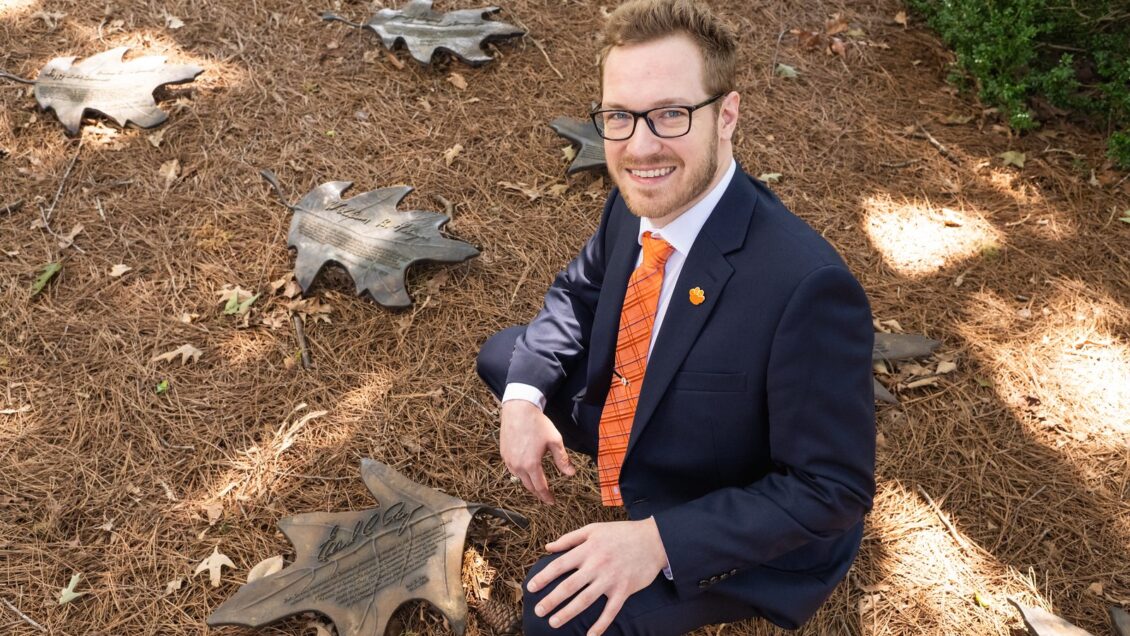
Nine years ago, Nicholas Gregorich was slicing cold cuts at the deli counter of an Italian market in the Detroit Metropolitan area without a college degree. Nine years later, in May 2023, he graduated from Clemson University with his Ph.D. in chemical engineering and more accomplishments than he could have ever imagined.
Gregorich serves as an inspirational example for students navigating the challenging and often imperfect path to graduation.
His academic career began in 2009 at the University of Michigan, where he found himself struggling during his freshman year.
“I had no control over my mental health or taking on the beast that is college,” said Gregorich. “I didn’t know who I was as a person or who I wanted to be. I couldn’t succeed and struggled with simple things like getting myself to class.”
Gregorich was born with sensorineural hearing loss, which primarily impacts his ability to hear high-frequency sounds. This disability created a barrier for him in school and led to negative experiences in childhood, which contributed to his mental health struggles. Still, Gregorich learned to fluently lip read at a young age and uses the assistance of hearing aids to combat this.
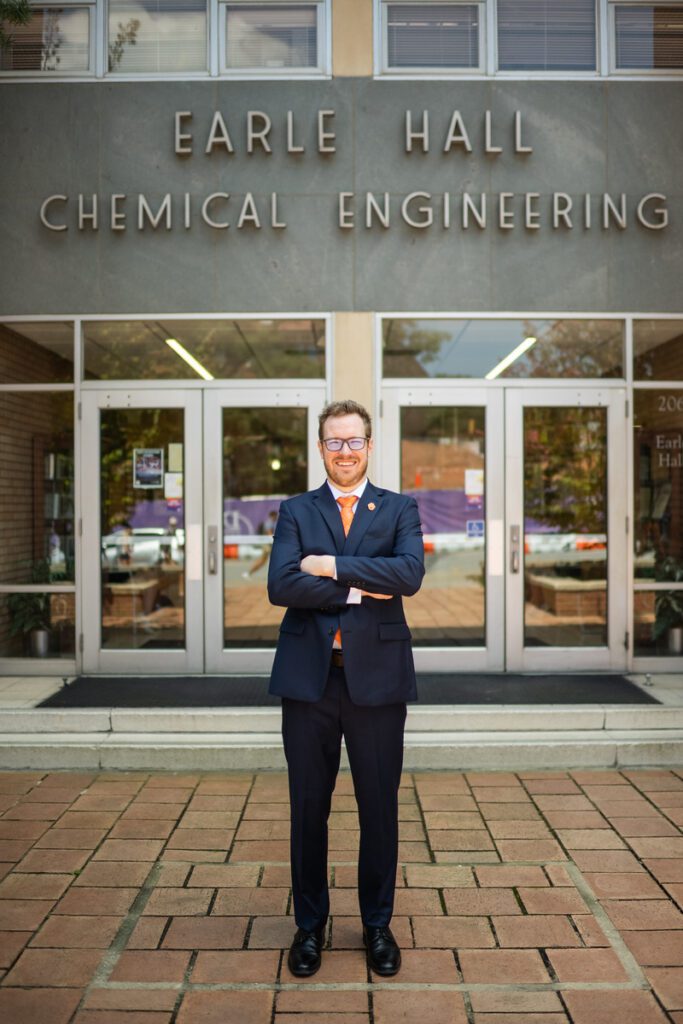
“The hearing aids I have now are the size of my pinky nail and not easy to see,” he explained. “But, in the 90s, I had to wear a belt with all these chords and a big headset — all while navigating a Metro Detroit public school system. I got bullied A LOT.”
Gregorich also received assistance from Clemson through Student Accessibility Services, where he was able to utilize an online captioning service to aid him in following along during class lectures and give him equal access to opportunities.
“The accessibility services available to me at Clemson were very helpful and necessary for me to succeed in my graduate coursework,” he said. “The captioners provided for my courses allowed me to not stress about missing important concepts in class since I knew I could look through the captions later that evening and fill in missing pieces to my notes that I was unable to hear at a particular point in the lecture.”
Gregorich hopes that he can encourage deaf and other hard-of-hearing people to pursue STEM-based careers as well since representation is historically very low (0.13%-0.19%).
In undergrad at the University of Michigan, Gregorich struggled with mental health and received too many insufficient grades, which landed him on mandatory leave multiple times. This gave him a break from school, but each time he returned, not much had changed.
Around 2013, after being placed on mandatory leave for the fourth time since starting college four years before, Gregorich decided to take a year off to work on himself and his mental health. In 2014, a phone call with Dr. Susan Montgomery, his then-adviser at the University of Michigan and a close mentor, influenced him to give college one last try and start prioritizing his future.
“I went back, and I four-pointed my chemical engineering courses that semester,” said Gregorich. “All I did was school, and I didn’t do anything else. I wanted my degree so badly.”
He graduated from the University of Michigan in 2016 with his B.S. in chemical engineering and received excellent grades throughout his last two years. He thought this would be it for his academics.
However, during his transformative return to college, Gregorich landed an internship for a research and development company in the Detroit area. Working under a research mentor at this internship inspired him to pursue a Ph.D. in chemical engineering.
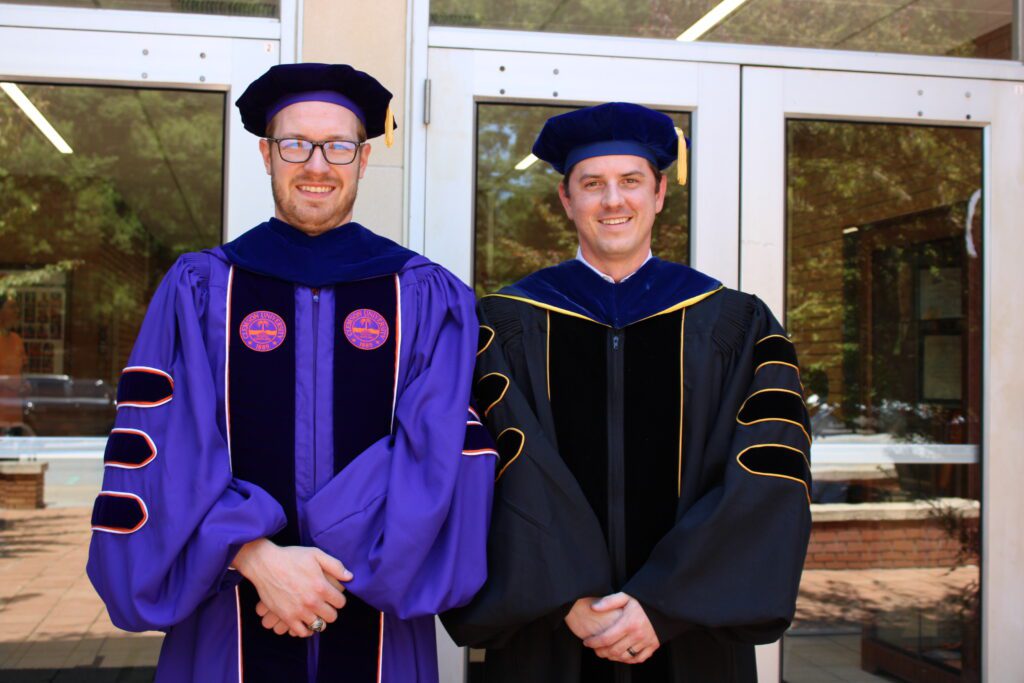
“When I applied for internships and graduate schools, I oftentimes got immediately rejected because my GPA was terrible,” he explained. “I found that application algorithms only considered my cumulative, overall GPA. It didn’t view how well I was performing in the present.”
Although he had excelled in his later years of undergrad, Gregorich’s earlier struggles in college affected his GPA and put him at a disadvantage when applying to graduate schools. He applied to many schools and was not finding much luck until he received his acceptance letter from Clemson University.
“The fact that Clemson actually took the time to look at my application and believed in my abilities made me very grateful. It was an incredible feeling and a day I will never forget,” he said.
In August 2017, Nicholas Gregorich joined the chemical and biomolecular engineering department under the advisement of Eric Davis, professor and associate chair of the department.
Davis had a huge influence on Gregorich’s decision to come to Clemson. Upon meeting during a recruitment visit held by the department for admitted students, the two became very close, and Gregorich quickly became a member of his research group.
It has been truly remarkable witnessing Nick’s growth and development, both as a researcher and as an individual, since he joined my research group in 2017. Throughout his time here at Clemson, I’ve been consistently impressed by Nick’s achievements. From his confidence in delivering lectures on thermodynamics as a GAANN fellow to winning Clemson’s Three Minute Thesis competition and subsequent participation in the southeast regional Three Minute Thesis competition, Nick has consistently demonstrated excellence. However, it was on that unforgettable day in May of this year, when I had the privilege of watching him deliver a gripping speech to a packed auditorium during the Ph.D. hooding ceremony, that it truly struck me just how proud I was to have had Nick as one of my graduate students. As Nick embarks on the next chapter of his life, I look forward to hearing about the remarkable endeavors he will undoubtedly undertake. It is a pleasure and an honor to be part of his academic journey.
ERIC DAVIS, PROFESSOR AND ASSOCIATE CHAIR OF THE CHEMICAL AND BIOMOLECULAR ENGINEERING DEPARTMENT
In 2019, Gregorich presented a compelling speech about his research at Clemson’s Three Minute Thesis competition, which won the top prize. He then attended the Conference of Southern Graduate Schools regional competition, where he placed in the top 8 out of 54 schools in 2020. This was the furthest achievement any Clemson Graduate student had achieved in the competition at this time.
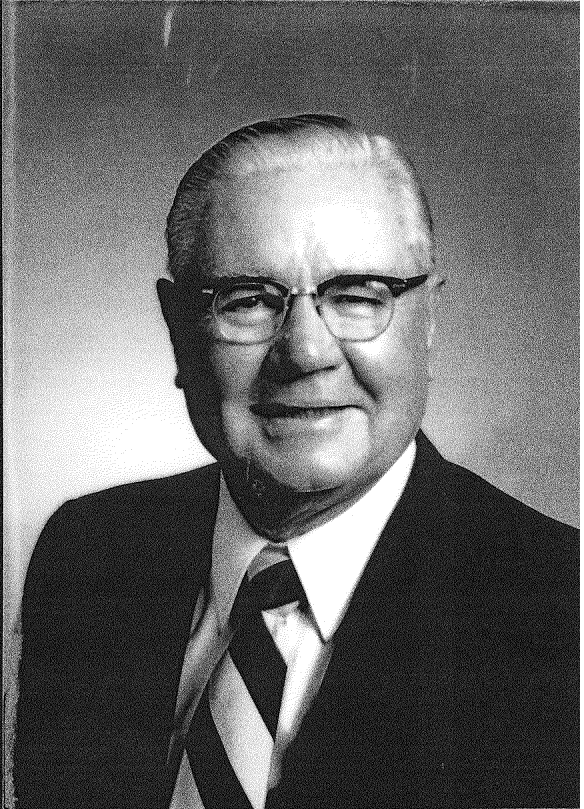
In 2022, he received the R.C. Edwards Outstanding Graduate Student Award for his high academic standing and involvement in the Clemson community. He was also selected by the Graduate Students and Postdoctoral Advisory Committee to present a speech that addressed his fellow graduates during his hooding ceremony in May 2023.

Gregorich explained that many of these achievements were possible from the support he received through Clemson. He received the Earl C. Ray ’38 Student Assistance Endowment, which aimed to provide assistance for an undergraduate or graduate student majoring in chemistry or chemical engineering under the College of Engineering and Science.
Earl Ray was born in Savannah, Georgia, on May 29, 1916, and passed away on January 13, 2009, at 92 years old. During his time at Clemson University, he was presented with the prestigious Norris Medal award for being the best all-around graduating senior.
Ray believed that going to Clemson ultimately led to his considerable success in his chosen profession. After graduating with his degree in chemistry, he had a long and successful career that led him to retire as the President of Gulf Oil’s Harshaw Chemical Company.
In honor of his love for Clemson, he wanted to aid a student pursuing a degree in the college he graduated from in 1938. His gift is forever honored by the university through a bronze leaf on Fort Hill that symbolizes his generous act of giving to Clemson.
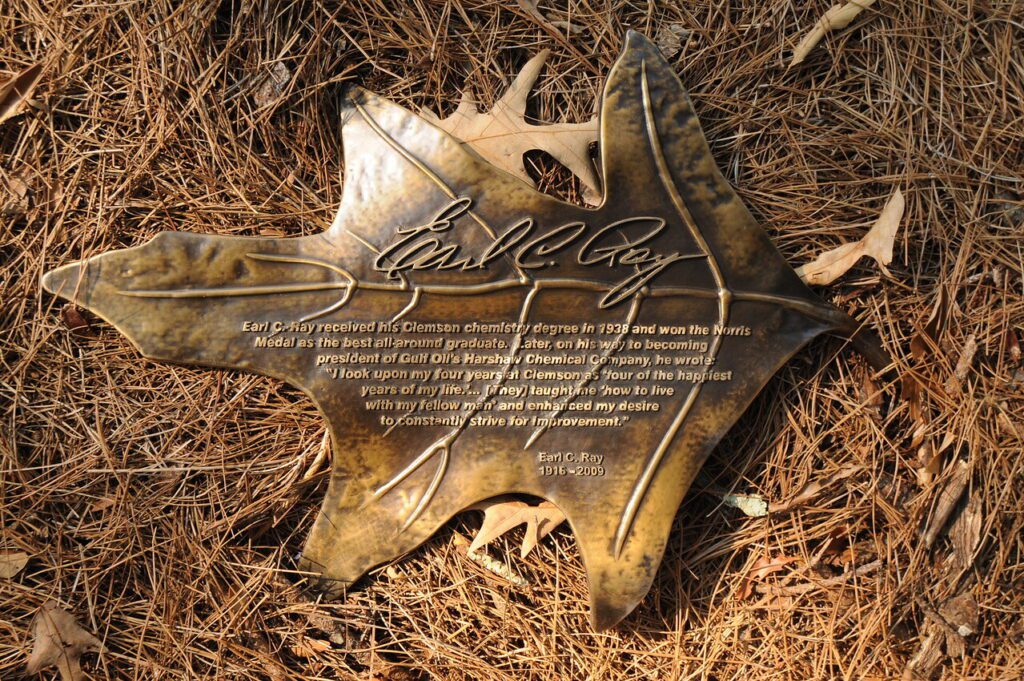
The Fort Hill Legacy Society dedicates a bronze leaf to those who leave $1 million or more to Clemson University in honor of their generosity. These leaves, including Ray’s, are placed under the Second Century Oak, which stands at Fort Hill on the historic site of the University’s first Board of Trustees meeting.
“Receiving this scholarship was a validation of all of the hard work that I put in and, at times, not knowing if it would pay off,” said Gregorich. “It showed that the time and effort I put in was valued by my fellow Tigers.”
Gifts like Earl C. Ray’s will help Clemson University meet the Clemson Elevate goal of doubling the University’s research expenditures by 2035 and giving graduate students like Gregorich the opportunity to further their education and grow stronger as researchers.
Gregorich also received financial assistance through the U.S. Department of Education Graduate Assistance in Areas of National Need (GAANN) Fellowship, which supports a graduate student in the Department of Chemical and Biomolecular Engineering. Through this fellowship, Gregorich was provided with at least a year of training in teaching at the University, which he says helped him discover his passion for teaching.
“I led several lectures in class, designed homework problems, and I was much more involved in the course,” he said. “The program created confidence in myself that I could effectively teach a course.”
Gregorich received tremendous support from the faculty at Clemson, including his adviser, Eric Davis, who molded him into a stronger, more capable researcher and communicator of science. He also received wonderful support from outside of his department, including an important mentor to him, Tia Dumas, the Associate Vice President for Strategic Alliances.
“Nick takes his education — not himself — seriously, and he values his family and friends immensely,” said Dumas. “He is persistent, organized and committed to his work.”
Gregorich met Dumas in 2019 during a boot camp she developed for the Clemson University Three Minute Thesis competition. When he won and was set to compete in regionals, Dumas was quick to provide support and guidance for the next level of the competition.
Soon after, her mentoring relationship with Gregorich began in 2020 while he served as the Director of Research Initiatives for the Clemson Graduate Student Government.
“Our responsibility is to help our students be their very best personally, professionally and academically. These three spheres of a student’s journey are interconnected and critical to one’s holistic success,” explained Dumas. “He’s going to be wearing that Tiger Paw on stage at the competition, in the classroom and into the future. I will, too. Let’s embrace the power of the paw.”
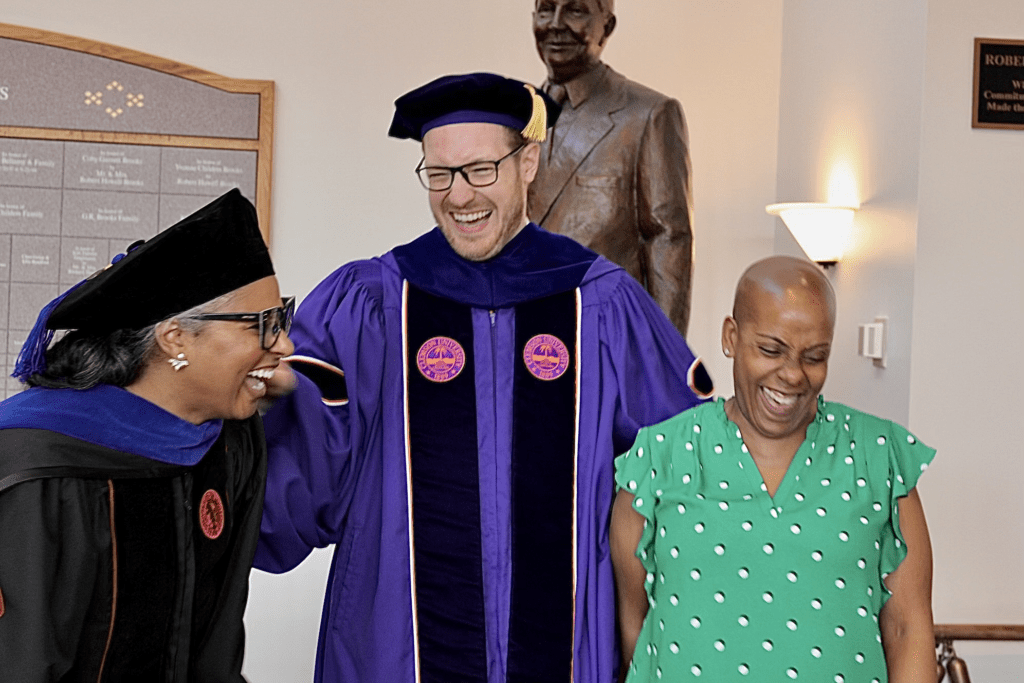
Coming to Clemson, Nicholas Gregorich had hopes of improving his public speaking skills and becoming an overall more well-rounded person. He earned various awards, made connections that will last a lifetime, acted as a mentor to many undergraduate students and shared his story to a room full of people during his time.
Clemson was memorable and transformative. I can leave here knowing that I can lead a research project with confidence, and not only can I move research in a particular area, but I can also mentor the people working on it with me. I aspire to become a tenure-track professor of chemical engineering and mentor younger generations of scientists into successful engineers and critical thinkers.
NICHOLAS GREGORICH, CLEMSON DOCTORAL GRADUATE OF CHEMICAL ENGINEERING
Gregorich shared that one day, like Earl C. Ray, he hopes to give back to the University as a thank-you for the valuable experiences he has gained that helped him grow and succeed. He also encourages students who may be struggling right now to stay hopeful. Not only can you recover academically and mentally, but once you find the right path, you might wind up on summits you have not yet dreamed of.
Get in touch and we will connect you with the author or another expert.
Or email us at news@clemson.edu
